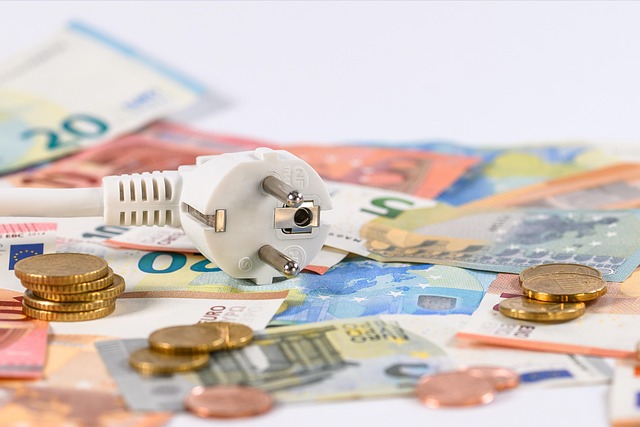Energy Deals: Save Big on UK Gas & Electricity in 2025!
As we approach 2025, UK households are increasingly focused on finding ways to reduce their energy costs. With the ongoing development of energy markets in Europe and the UK, new opportunities for savings are emerging. This article will explore the current state of the UK energy market, upcoming changes, and strategies to help you secure the best deals on gas and electricity in 2025.

How has the UK energy market evolved in recent years?
The UK energy market has undergone significant changes over the past decade. The push for renewable energy sources, increased competition among suppliers, and technological advancements have all played a role in shaping the current landscape. The Development of Energy Markets in Europe has influenced the UK’s approach, with a focus on creating a more dynamic and consumer-friendly market.
In recent years, we’ve seen the introduction of smart meters, the rise of smaller, independent energy suppliers, and a greater emphasis on green energy tariffs. These developments have given consumers more choice and control over their energy consumption and costs.
What changes can we expect in the UK energy market by 2025?
Looking ahead to 2025, several key trends are likely to impact the UK energy market:
-
Increased renewable energy capacity: The UK government’s commitment to net-zero emissions by 2050 will drive further investment in renewable energy sources.
-
Smart grid technology: The rollout of smart meters and grid infrastructure will continue, enabling more efficient energy distribution and usage.
-
Time-of-use tariffs: These pricing structures, which offer lower rates during off-peak hours, are expected to become more common.
-
Energy storage solutions: Advancements in battery technology may allow households to store excess energy generated from renewable sources.
-
Greater market competition: The ongoing Development of Energy Markets in UK is likely to result in more suppliers entering the market, potentially leading to better deals for consumers.
How can consumers find the best energy deals in 2025?
To secure the most competitive energy deals in 2025, consumers should:
-
Regularly compare tariffs: Use comparison websites to check for better deals at least once a year.
-
Consider fixed-rate tariffs: These can protect against price fluctuations, but be aware of any exit fees.
-
Look for dual fuel discounts: Combining gas and electricity with one supplier often results in savings.
-
Explore green energy options: As renewable energy becomes more prevalent, green tariffs may offer competitive rates.
-
Take advantage of smart meter benefits: Use the data provided to optimize your energy usage and reduce costs.
What role will technology play in reducing energy costs?
Technology will be a crucial factor in helping consumers manage their energy consumption and costs in 2025. Smart home devices, such as thermostats and appliances that can be controlled remotely, will allow for more efficient energy use. Energy management apps will provide real-time data on consumption and costs, enabling users to make informed decisions about their usage patterns.
Additionally, the continued development of the Energy Market will likely lead to more innovative products and services designed to help consumers reduce their energy bills.
Are there any government initiatives to help reduce energy costs in 2025?
The UK government is likely to continue implementing policies aimed at reducing energy costs and promoting energy efficiency. While specific initiatives for 2025 have not yet been announced, we can expect a continuation of existing programs such as:
-
The Energy Company Obligation (ECO): This scheme requires larger energy suppliers to provide energy-saving measures to low-income and vulnerable households.
-
Warm Home Discount: This program offers a one-off discount on electricity bills for eligible consumers.
-
Renewable Heat Incentive (RHI): This initiative provides financial incentives for households using renewable heating systems.
-
Grants for home insulation and energy-efficient appliances: These programs help reduce energy consumption and costs in the long term.
What are the projected energy prices and potential savings for 2025?
While it’s challenging to predict exact energy prices for 2025, we can provide some estimates based on current trends and projections:
| Tariff Type | Estimated Annual Cost | Potential Savings |
|---|---|---|
| Standard Variable | £1,200 - £1,400 | Baseline |
| Fixed Rate | £1,100 - £1,300 | Up to £300 |
| Green Energy | £1,150 - £1,350 | Up to £250 |
| Time-of-Use | £1,050 - £1,250 | Up to £350 |
| Dual Fuel | £1,000 - £1,200 | Up to £400 |
Prices, rates, or cost estimates mentioned in this article are based on the latest available information but may change over time. Independent research is advised before making financial decisions.
These projections suggest that consumers could potentially save up to £400 per year by choosing the right energy deal in 2025. However, actual savings will depend on individual consumption patterns, location, and market conditions.
The Development of Energy Markets in Europe and the UK continues to drive competition and innovation, which should lead to more competitive pricing and diverse options for consumers. By staying informed about market changes, leveraging technology, and taking advantage of government initiatives, UK households can position themselves to achieve significant savings on their gas and electricity bills in 2025 and beyond.




